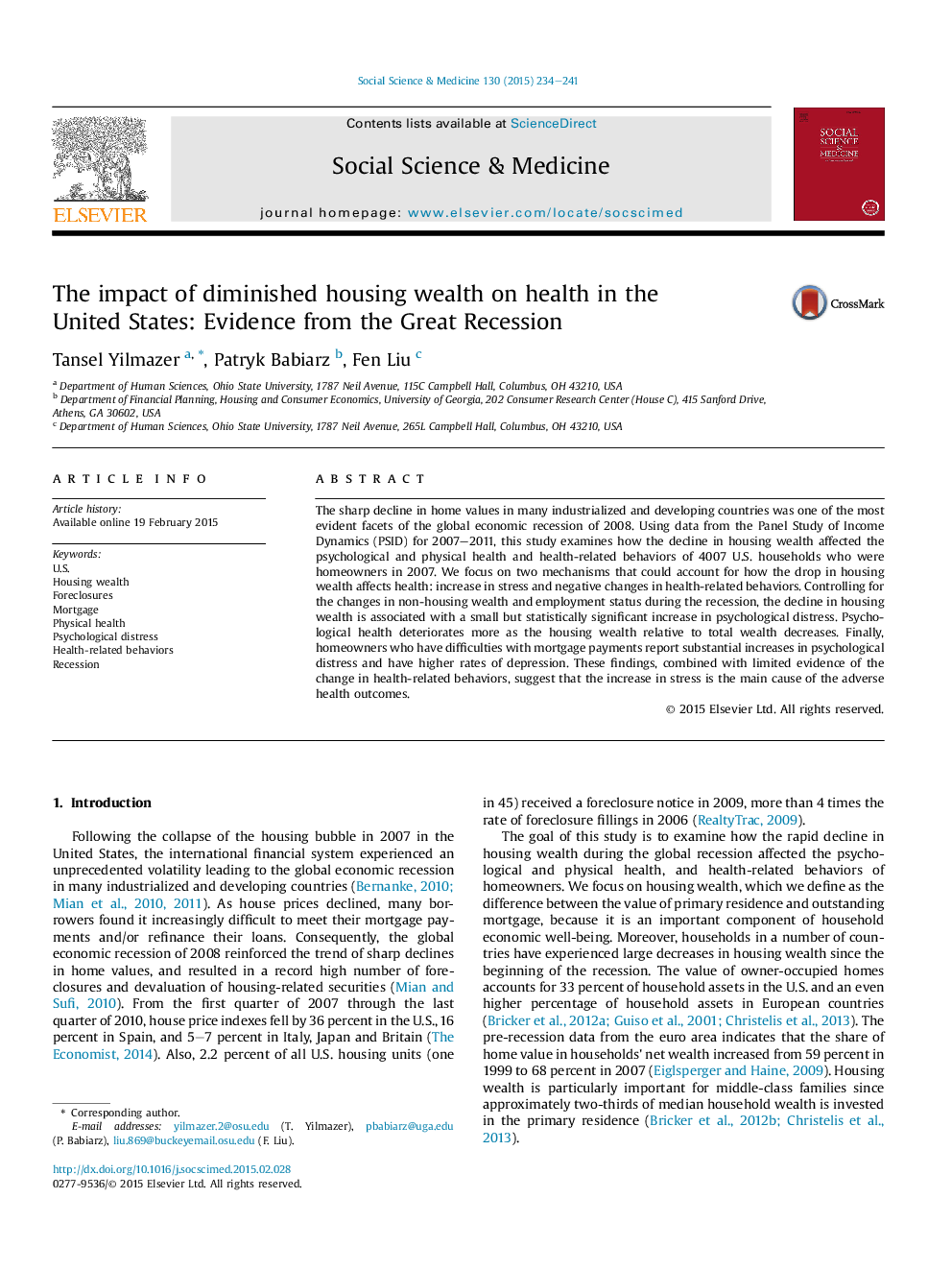| Article ID | Journal | Published Year | Pages | File Type |
|---|---|---|---|---|
| 7332989 | Social Science & Medicine | 2015 | 8 Pages |
Abstract
The sharp decline in home values in many industrialized and developing countries was one of the most evident facets of the global economic recession of 2008. Using data from the Panel Study of Income Dynamics (PSID) for 2007-2011, this study examines how the decline in housing wealth affected the psychological and physical health and health-related behaviors of 4007 U.S. households who were homeowners in 2007. We focus on two mechanisms that could account for how the drop in housing wealth affects health: increase in stress and negative changes in health-related behaviors. Controlling for the changes in non-housing wealth and employment status during the recession, the decline in housing wealth is associated with a small but statistically significant increase in psychological distress. Psychological health deteriorates more as the housing wealth relative to total wealth decreases. Finally, homeowners who have difficulties with mortgage payments report substantial increases in psychological distress and have higher rates of depression. These findings, combined with limited evidence of the change in health-related behaviors, suggest that the increase in stress is the main cause of the adverse health outcomes.
Keywords
Related Topics
Health Sciences
Medicine and Dentistry
Public Health and Health Policy
Authors
Tansel Yilmazer, Patryk Babiarz, Fen Liu,
